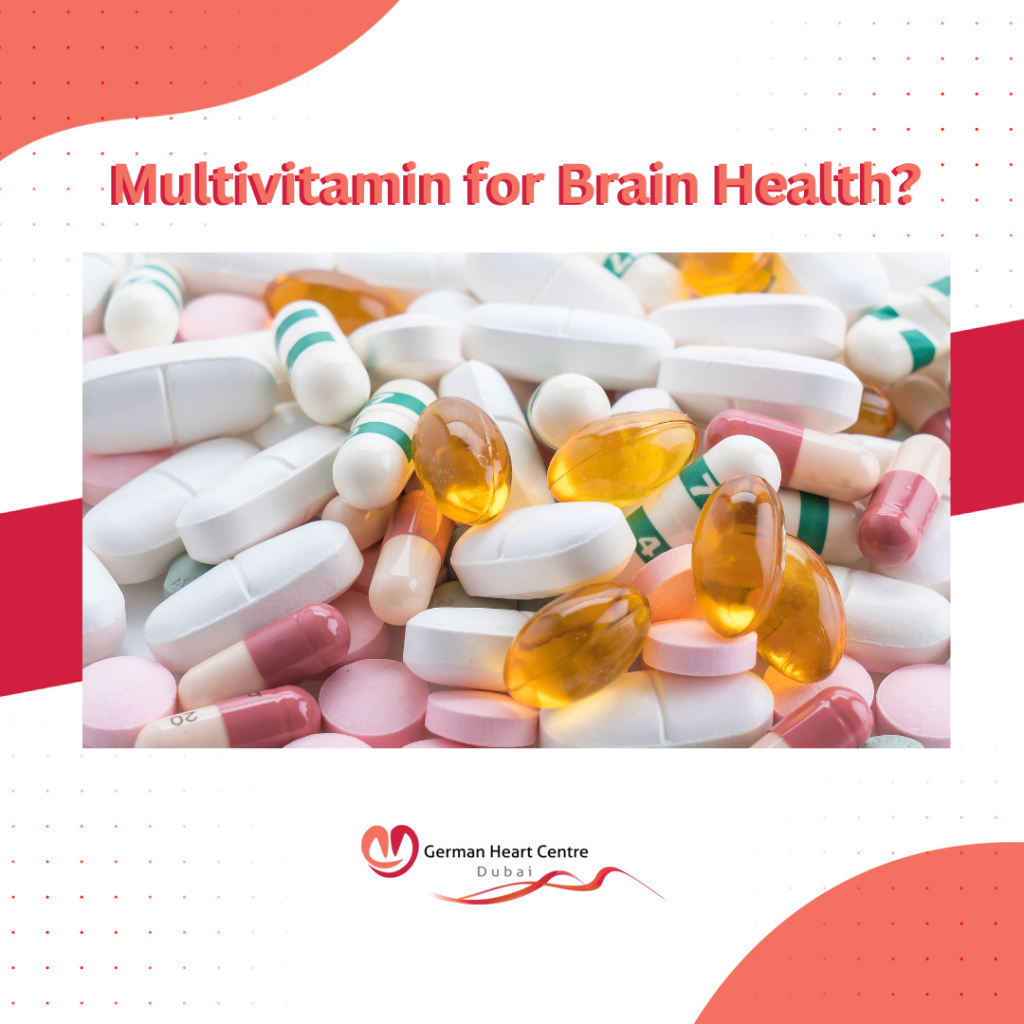Can a Multivitamin Give Your Brain a Boost?
Our current options for improving brain health are limited. For example, regular exercise, optimal weight, and a heart-healthy diet can improve cardiovascular health and lower the chances of certain types of dementia, such as dementia due to strokes. Beyond such common-sense measures, no available medicines, supplements, or treatments reliably improve brain function over the long term, despite advertisements claiming otherwise. A team of researchers from the Wake Forest University School of Medicine, in collaboration with Brigham and Women’s Hospital in Boston, tested whether daily administration of cocoa extract versus a placebo and a multivitamin-mineral versus a placebo could improve cognition in more than 2,200 adults 65 and older over the course of three years. At the end of a three-year trial, people who had taken a commercially available multivitamin-mineral supplement had a cognitive age that was 1.8 years younger than those who took a placebo. “It’s an eye opener,” says Laura Baker at Wake Forest University in Winston-Salem, North Carolina. The benefits of taking multivitamin pills have been debated among doctors. They were once widely recommended as an “insurance policy” for people with poor diets, based on studies that found those who take them tend to have better health.
Is it a treatment for Dementia?
At the end of a three-year trial, people who had taken a commercially available multivitamin-mineral supplement had a cognitive age that was 1.8 years younger than those who took a placebo. “It’s an eye opener,” says Laura Baker at Wake Forest University in Winston-Salem, North Carolina. The benefits of taking multivitamin pills have been debated among doctors. They were once widely recommended as an “insurance policy” for people with poor diets, based on studies that found those who take them tend to have better health.
Should we all be taking multivitamins?
This study alone isn’t enough to suggest routine use of multivitamins for people of all ages. It may turn out that the benefits for older adults seen in this study were due to deficiencies in certain nutrients among some of the study participants. We don’t know if this is true because it wasn’t part of the study. Or we might learn that the benefits reported here are too small to make much difference in real life, or wane over time, or have no effect on preventing common types of dementia. And it’s hard to ignore an earlier randomized, placebo-controlled trial that was actually larger and longer-term: it found no improvement in brain function among male physicians ages 65 and older taking multivitamins.
Tips for taking care of your brain
While we wait for the research, experts say there are a number of things you can do to help keep your brain healthy. In fact, up to 40 percent of dementia cases may be prevented or delayed if certain risk factors are managed, according to the Centers for Disease Control and Prevention. If you have diabetes or high blood pressure, make sure your doctor is “aggressive” in helping you manage those conditions, Lyketsos says. He also recommends staying active, both socially and physically. Move as much as you can throughout the day and aim for two and a half hours a week of moderate-intensity exercise, plus a few days of strength training, the GCBH recommends. Other tips: Cut back on alcohol and find healthy ways to manage stress, Nordvig says. “A life balance that stimulates, empowers and fulfills you are all wonderful to preserve brain health,” she adds. And when mealtime comes around, make sure the food on your plate is “colorful” — think leafy greens and bright berries — not beige or brown, Baker says.
The bottom line
Claims that certain supplements can improve brain health are everywhere you look. But sound scientific evidence backing up those claims is much rarer. That’s one reason this new study is important: if confirmed, it means that a safe, widely available, and inexpensive vitamin supplement could improve quality of life for many millions of aging people.
The team at 德国心脏中心 is certified and experienced to support the diagnosis of your symptoms. Call today with your questions or to book a full physical check-up.
Disclaimer: This content including advice provides generic information only. It is in no way a substitute for a qualified medical opinion. Always consult a specialist or your own doctor for more information on the topic.

